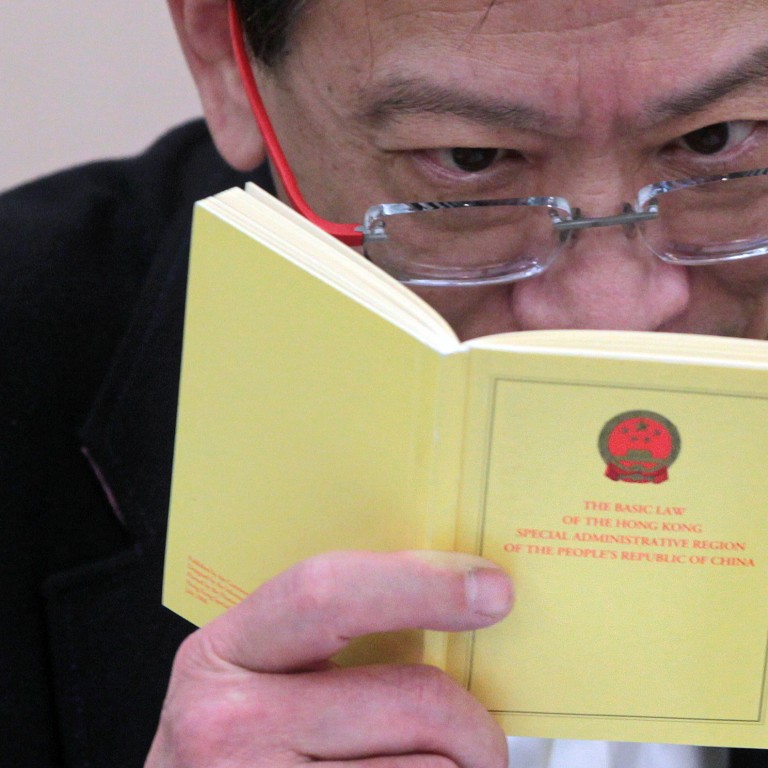
On separation of powers in Hong Kong, debate can help narrow differences
The chief executive's powers are spelled out in various articles in the Basic Law. Likewise, the legislature, judiciary and the executive branch also have specific but separate functions.
The chief executive's powers are spelled out in various articles in the Basic Law. Likewise, the legislature, judiciary and the executive branch also have specific but separate functions. Despite the clear division, different interpretations still arise from time to time. Last week, Beijing's liaison office chief, Zhang Xiaoming , sought to clear the air by offering an official view on the chief executive's constitutional role. He dismissed the long-held concept of separation of powers in the city, saying the top leader holds a position that transcends the three branches. This has understandably raised concerns in some sectors, as reflected in the Bar Association's stance on the issue. Yesterday, Leung Chun-ying clarified that Zhang did not say the chief executive could override decisions made by the judiciary and legislature. But the city did not have full executive, legislative and judicial powers as in some Western states, he said.
With the anniversary of the Occupy protests not far off, the timing of Zhang's speech has aroused much speculation. What can be sure is that Beijing has become more assertive on matters of principle and will not shy away from speaking up when the city strays off the right track. From the landmark July 1 protest in 2003 to last year's Occupy movement, from fighting the national education curriculum to booing the national anthem, and from filibustering in Legco to the political reform fiasco, there is no shortage of examples that worry Beijing.
There are reasons why the Hong Kong leader holds a unique position. Although he is elected according to local laws, his authority stems from Beijing's appointment. As head of the special administrative region, he is accountable to both the people of Hong Kong and the central government. But it should be noted that the status does not place him above the law. Nor is he given unchecked powers. Judicial independence is firmly rooted in the Basic Law. Even the top leader cannot influence the courts or overturn their rulings. There are also safeguards governing the relationship between the executive and the legislature. For instance, lawmakers can impeach the chief executive for a serious breach of law or dereliction of duty. Even though the separation of powers is not written into the Basic Law, checks and balances are a reality.
Given the different emphases Hong Kong and the mainland place on the "one country, two systems" principle, there may well be more discord in future. It is to be hoped that rational debate can help narrow the gap.

